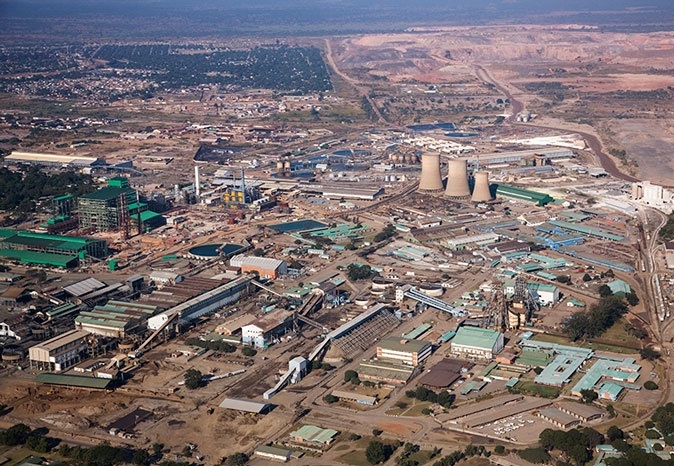Zambia’s mining sector remains the backbone of its economy, contributing significantly to employment, exports, and government revenue. However, the complexity and scale of mining operations require strong oversight mechanisms to ensure fair procurement practices, transparency, and accountability. This is where the Procurement and Monitoring Entity (PMEC) comes in — a vital institution created to regulate and monitor procurement activities within Zambia’s mining industry.
This guide explores what PMEC is, its purpose, how it functions, and its impact on the mining sector and local suppliers.
1. What is PMEC?
The Procurement and Monitoring Entity (PMEC) is a government-established body responsible for overseeing, monitoring, and regulating procurement and contract management processes in Zambia’s mining sector.
Its creation aligns with the government’s broader goal of promoting transparency, fairness, and local participation in mining-related procurement. PMEC ensures that the acquisition of goods and services by mining companies follows national procurement laws and policies, such as those outlined in the Public Procurement Act and other sector-specific regulations.
2. The Purpose of PMEC
PMEC was established to bring order and accountability to procurement processes in the mining industry. Its key objectives include:
- Promoting Transparency: Ensuring that all mining procurement activities are conducted openly and in line with established procedures.
- Encouraging Local Participation: Supporting Zambian suppliers, contractors, and manufacturers to participate in mining supply chains.
- Standardizing Processes: Harmonizing procurement procedures to ensure efficiency and reduce duplication or irregularities.
- Monitoring Compliance: Ensuring that mining companies and contractors adhere to national procurement and financial regulations.
- Enhancing Value for Money: Guaranteeing that goods and services purchased meet required standards at fair prices.
3. The Role of PMEC in the Mining Sector
PMEC serves as the central oversight body for procurement in the mining industry. Its responsibilities include:
- Approval of Procurement Plans: Mining companies are required to submit annual procurement plans for PMEC’s review and approval.
- Monitoring Tender Processes: PMEC supervises tenders and contract awards to ensure they are competitive, transparent, and fair.
- Auditing and Compliance Checks: Regular audits help identify and correct irregularities in procurement and contract execution.
- Capacity Building: PMEC provides training and technical support to procurement officers, suppliers, and contractors in the mining sector.
- Reporting and Accountability: The entity maintains detailed records of procurement activities and reports to relevant government ministries and agencies.
Through these functions, PMEC promotes efficiency, reduces corruption risks, and ensures that mining operations contribute meaningfully to Zambia’s economic development.
4. How PMEC Supports Local Suppliers
One of PMEC’s most impactful roles is promoting local content participation. Historically, many contracts in the mining sector went to foreign suppliers, leaving local businesses sidelined. PMEC is changing that by ensuring that Zambian-owned companies have access to procurement opportunities.
Some of the measures that PMEC has introduced to support local suppliers include:
- Local Supplier Registration: PMEC encourages and facilitates the registration of Zambian companies that meet quality and compliance standards.
- Supplier Training and Certification: Local businesses receive guidance on how to meet mining industry procurement requirements.
- Preferential Procurement Policies: PMEC promotes policies that give priority to Zambian suppliers in certain categories of contracts.
- Transparency in Tender Opportunities: By publicizing procurement opportunities, PMEC ensures equal access to information for all potential suppliers.
This approach helps strengthen Zambia’s industrial base, create jobs, and keep more value within the local economy.
5. PMEC and Compliance Requirements
Mining companies and contractors working in Zambia must comply with PMEC’s procurement and reporting requirements. Key compliance areas include:
- Submitting annual procurement and expenditure plans for approval.
- Conducting open and competitive bidding processes.
- Maintaining accurate records of all procurement transactions.
- Submitting quarterly reports to PMEC detailing contract performance and supplier engagement.
- Cooperating during audits and compliance inspections.
Non-compliance can lead to penalties, suspension of contracts, or blacklisting of suppliers and contractors.
6. How to Register with PMEC
To participate in mining sector tenders and supply opportunities regulated by PMEC, businesses must first be registered and recognized by the entity.
Steps for Registration:
- Obtain a ZRA Taxpayer Identification Number (TPIN): This confirms that your business is tax compliant.
- Register with the Patents and Companies Registration Agency (PACRA): Ensure your company is legally incorporated in Zambia.
- Submit Application to PMEC: Provide company documents, proof of tax compliance, and relevant certifications.
- Undergo Verification: PMEC may verify your business credentials and capacity before final approval.
- Receive PMEC Supplier Registration Number: Once approved, your company will be listed as an eligible supplier for mining procurement.
Registered suppliers gain access to tenders, framework agreements, and other business opportunities within the regulated mining ecosystem.
7. Benefits of PMEC Regulation
PMEC brings several benefits to the mining sector and Zambia’s economy as a whole:
- Transparency and Accountability: Reduces corruption and ensures fair competition.
- Economic Empowerment: Encourages participation of Zambian-owned companies in mining supply chains.
- Efficiency: Streamlines procurement processes, reducing delays and administrative costs.
- Improved Standards: Ensures goods and services supplied to mining companies meet safety and quality benchmarks.
- Revenue Mobilization: Enhances tax compliance and revenue collection through formalized procurement processes.
These outcomes make PMEC a cornerstone of Zambia’s effort to build a more transparent, equitable, and sustainable mining industry.
8. Challenges Facing PMEC
Despite its achievements, PMEC faces several challenges that affect its operations:
- Limited Awareness: Many local suppliers are still unaware of PMEC’s existence or its registration requirements.
- Capacity Constraints: Both PMEC staff and suppliers often need more training and resources to handle complex mining procurement demands.
- Resistance to Change: Some stakeholders in the mining sector resist increased regulation, preferring traditional procurement methods.
- Technology Integration: There is still a need for full digitalization of PMEC’s procurement monitoring systems to enhance efficiency.
Addressing these challenges will require sustained collaboration between government agencies, mining companies, and private sector players.
Conclusion
The establishment of the Procurement and Monitoring Entity (PMEC) marks a significant milestone in Zambia’s journey toward transparency, accountability, and inclusive growth within the mining industry. By ensuring that procurement processes are fair, efficient, and supportive of local businesses, PMEC not only safeguards public interest but also strengthens the country’s economic foundations.
For mining companies, compliance with PMEC guidelines is both a legal and ethical responsibility. For local suppliers, it is an opportunity to gain access to one of the most lucrative sectors in Zambia’s economy.
Understanding and engaging with PMEC is therefore essential for anyone looking to do business in Zambia’s mining industry — whether as a supplier, contractor, or investor.







